The Element of Surprise

Remember the American Express Card slogan, “Don’t leave home without it?” Great slogan but as a writer, I have a different take on the saying. “Don’t publish without an editor.” There are different types of editors. A few that come to mind are developmental, copy editing, and proofreading. Many authors rely on their agents to go over their manuscript with the proverbial fine-tooth comb before submission.
I go through these stages, too, when I submit for publication. In truth, I’ve only had two “overall” editors in my fiction career. Despite having a fabulous critique partner and beta readers, my editors are the ones who discovered plot holes I’d never considered on my own. Could it be they’ve pored over a few manuscripts in their day?
Pat Van Wie was my first editor. Pat is a multi-published author and writing instructor. 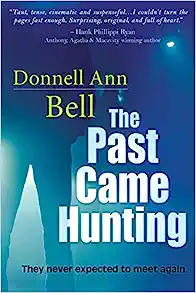 https://patricialewin.com/ She writes in two genres as Patricia Lewan and Patricia Keelyn. As a brand new author, I learned much from Pat. One is an issue that arose in my debut novel, The Past Came Hunting. In TPCH, my protagonist Melanie Norris is an ex-con determined to keep her stint in prison a secret from her son. As the story progresses, she is no longer the mixed-up runaway who left home at seventeen. The grownup Melanie obeys the law.
https://patricialewin.com/ She writes in two genres as Patricia Lewan and Patricia Keelyn. As a brand new author, I learned much from Pat. One is an issue that arose in my debut novel, The Past Came Hunting. In TPCH, my protagonist Melanie Norris is an ex-con determined to keep her stint in prison a secret from her son. As the story progresses, she is no longer the mixed-up runaway who left home at seventeen. The grownup Melanie obeys the law.
Except one. This law states convicted felons can’t possess firearms and creates a problem for Mel. Particularly when she learns Drake Maxwell, the man with whom she’s accused of committing the crime, is scheduled for release. Maxwell has promised retribution. Mel breaks her own code by locating her deceased husband’s Smith and Wesson revolver and keeps it close by in case she needs it.
I’m sure my goal when I wrote the book was to show how afraid she was of Maxwell and point out to the reader how much she’d changed.
What did my editor have to say about it?
Pat Van Wie’s comment: “What does she do with the gun?”
Me: “Nothing. She’s an ex-con; she can’t own one.”
Pat Van Wie: “Do something with that gun.”
That’s it? Do something? She might as well have told me to cut off an appendage. Most authors will agree when you add or delete a thread to the story, it’s not always a simple fix. It often involves pages of rewriting. Pat’s question created a plot problem that left me with some sleepless nights. Something tells me that was the idea because my muse took it from there.
What was the result? Revealing what Mel does with that gun created a deeper level of trust between my protagonists and strengthened their relationship. It also created one of the most poignant and romantic scenes I’ve ever written.
Today, Debra Dixon is my editor. She’s also the publisher of BelleBooks/Bell Bridge Books and is the renowned author of GMC: Goal, Motivation, and 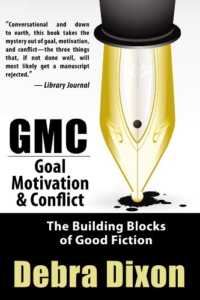 Conflict. When people refer to respected craft books, Goal Motivation and Conflict is listed at the top among Dwight Swain’s Techniques of a Selling Writer and Joseph Campbell’s The Heroes Journey.
Conflict. When people refer to respected craft books, Goal Motivation and Conflict is listed at the top among Dwight Swain’s Techniques of a Selling Writer and Joseph Campbell’s The Heroes Journey.
Writers will tell you it’s your book; you don’t have to make changes. But if Debra Dixon glitches on something in my manuscript, I pay attention and work to fix it. When I work through the problem, I deliver a better book.
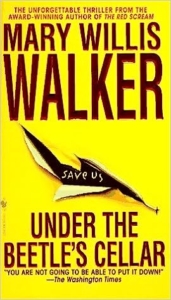 As you might imagine, Debra Dixon is also incredibly well read. When I veered from romantic suspense to the suspense genre, she recommended I read Under the Beetle’s Cellar by Mary Willis Walker. I devoured that book in a single weekend. If you love suspense, I recommend it as well.
As you might imagine, Debra Dixon is also incredibly well read. When I veered from romantic suspense to the suspense genre, she recommended I read Under the Beetle’s Cellar by Mary Willis Walker. I devoured that book in a single weekend. If you love suspense, I recommend it as well.
When I was in the throes of writing Black Pearl, she suggested another suspense novel. Writing is subjective and I didn’t care for it. After I’d finished, I wrote back explaining that while I agree the plot was terrific, I thought the novel went into too much graphic detail and bordered on horror. I didn’t think I could ever write such a book.
Her response? She didn’t expect me to change my writing style or my writing preferences; she wanted me to observe the many surprises the author included in the chapters. I reread and had to agree. As authors we’re trained to end chapters on a hook, to limit backstory and keep the momentum going forward. But suspense readers expect twists and turns.
As storytellers, our job is to engage the reader and never leave them scratching their heads. If you include something in your novel, make sure you have a reason. Finally, surprise is an important element in fiction. I learned these tips from my editors. I recommend an author never publish without one.
How about you? Have your editors taught you a thing or two?
About the Author: Leaving international thrillers to world travelers, Donnell Ann Bell concentrates on suspense that might happen in her neck of the woods – writing SUSPENSE TOO CLOSE TO HOME. She’s written four Amazon standalone bestsellers. These days she’s concentrating on her cold case series, her first two, Black Pearl and Until Dead. Currently, she’s working on book three. https://www.donnellannbell.com/





 What do you do when you’re suffering from the literary equivalent of a bad day on the mound? You’re all set to hurl a fast ball that should nip the corner of the strike zone and send the batter swinging at air when you wind up tossing a lob that he hits out of the park. In other words, you’ve got writer’s block.
What do you do when you’re suffering from the literary equivalent of a bad day on the mound? You’re all set to hurl a fast ball that should nip the corner of the strike zone and send the batter swinging at air when you wind up tossing a lob that he hits out of the park. In other words, you’ve got writer’s block.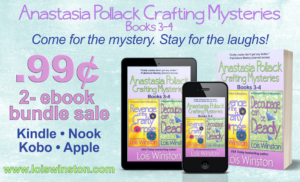 Also, through the end of the month, the Anastasia Pollack Crafting Mysteries, Books 3-4, featuring Revenge of the Crafty Corpse and Decoupage Can Be Deadly, is on sale for only .99 cents. Find buy links
Also, through the end of the month, the Anastasia Pollack Crafting Mysteries, Books 3-4, featuring Revenge of the Crafty Corpse and Decoupage Can Be Deadly, is on sale for only .99 cents. Find buy links 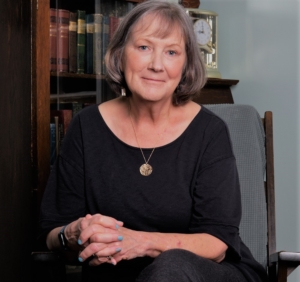

 As with almost everything else these days, the entertainments we each choose to watch have become more and more disparate. Also, movie stars rarely awe us in the same way they used to do. What was once a common annual viewing ritual seems to have lost its place as a shared social and cultural experience.
As with almost everything else these days, the entertainments we each choose to watch have become more and more disparate. Also, movie stars rarely awe us in the same way they used to do. What was once a common annual viewing ritual seems to have lost its place as a shared social and cultural experience.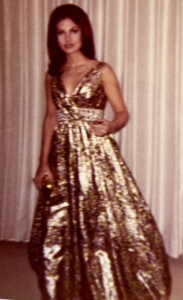 A popular game begins immediately afterward, when the critics—amateurs and professionals alike—have their say about the bests and worsts of the broadcast. Most vocal among them are the grumblers who debate the worthiness of the winners. Coming in a close second are those who critique the female attendees’ fashion choices, which put me in mind of the dress I once wore to the Oscars.
A popular game begins immediately afterward, when the critics—amateurs and professionals alike—have their say about the bests and worsts of the broadcast. Most vocal among them are the grumblers who debate the worthiness of the winners. Coming in a close second are those who critique the female attendees’ fashion choices, which put me in mind of the dress I once wore to the Oscars. But here’s the dress: a flowered silk jacquard overlaid with gold thread in a Paisely pattern. Still looks new, though I no longer weigh the ninety-eight pounds required to fit into it.
But here’s the dress: a flowered silk jacquard overlaid with gold thread in a Paisely pattern. Still looks new, though I no longer weigh the ninety-eight pounds required to fit into it. Which brings me back to the dress I wore on the red carpet, long ago. When I peer into the photos of me in it, I feel lightyears and multiple universes removed from the person who wore it. Still, I want to find that missing Oscars program, if only to confirm how far I’ve time-traveled beyond those show biz days.
Which brings me back to the dress I wore on the red carpet, long ago. When I peer into the photos of me in it, I feel lightyears and multiple universes removed from the person who wore it. Still, I want to find that missing Oscars program, if only to confirm how far I’ve time-traveled beyond those show biz days.
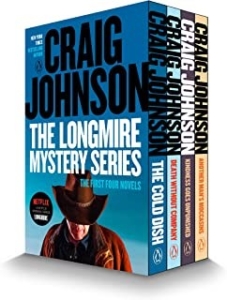
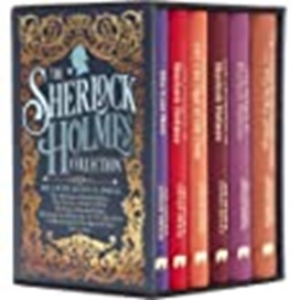
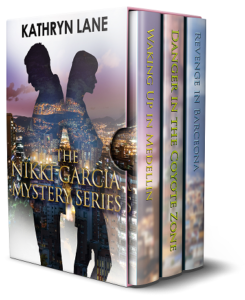 The Nikki Garcia Mystery Series (eBooks version) is on sale from March 7 to March 10 for $1.74.
The Nikki Garcia Mystery Series (eBooks version) is on sale from March 7 to March 10 for $1.74. Kathryn Lane is the award-winning author of the Nikki Garcia Mystery Series.
Kathryn Lane is the award-winning author of the Nikki Garcia Mystery Series.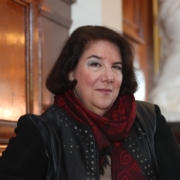

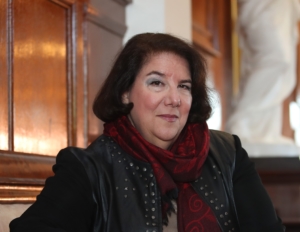

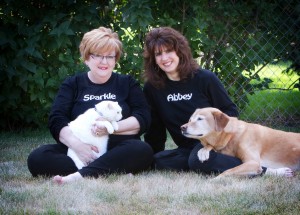
 By Lois Winston
By Lois Winston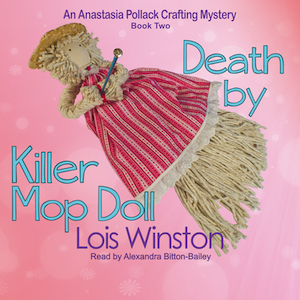
 USA Today and Amazon bestselling and award-winning author Lois Winston writes mystery, romance, romantic suspense, chick lit, women’s fiction, children’s chapter books, and nonfiction under her own name and her Emma Carlyle pen name. Kirkus Reviews dubbed her critically acclaimed Anastasia Pollack Crafting Mystery series, “North Jersey’s more mature answer to Stephanie Plum.” In addition, Lois is a former literary agent and an award-winning craft and needlework designer who often draws much of her source material for both her characters and plots from her experiences in the crafts industry.
USA Today and Amazon bestselling and award-winning author Lois Winston writes mystery, romance, romantic suspense, chick lit, women’s fiction, children’s chapter books, and nonfiction under her own name and her Emma Carlyle pen name. Kirkus Reviews dubbed her critically acclaimed Anastasia Pollack Crafting Mystery series, “North Jersey’s more mature answer to Stephanie Plum.” In addition, Lois is a former literary agent and an award-winning craft and needlework designer who often draws much of her source material for both her characters and plots from her experiences in the crafts industry.